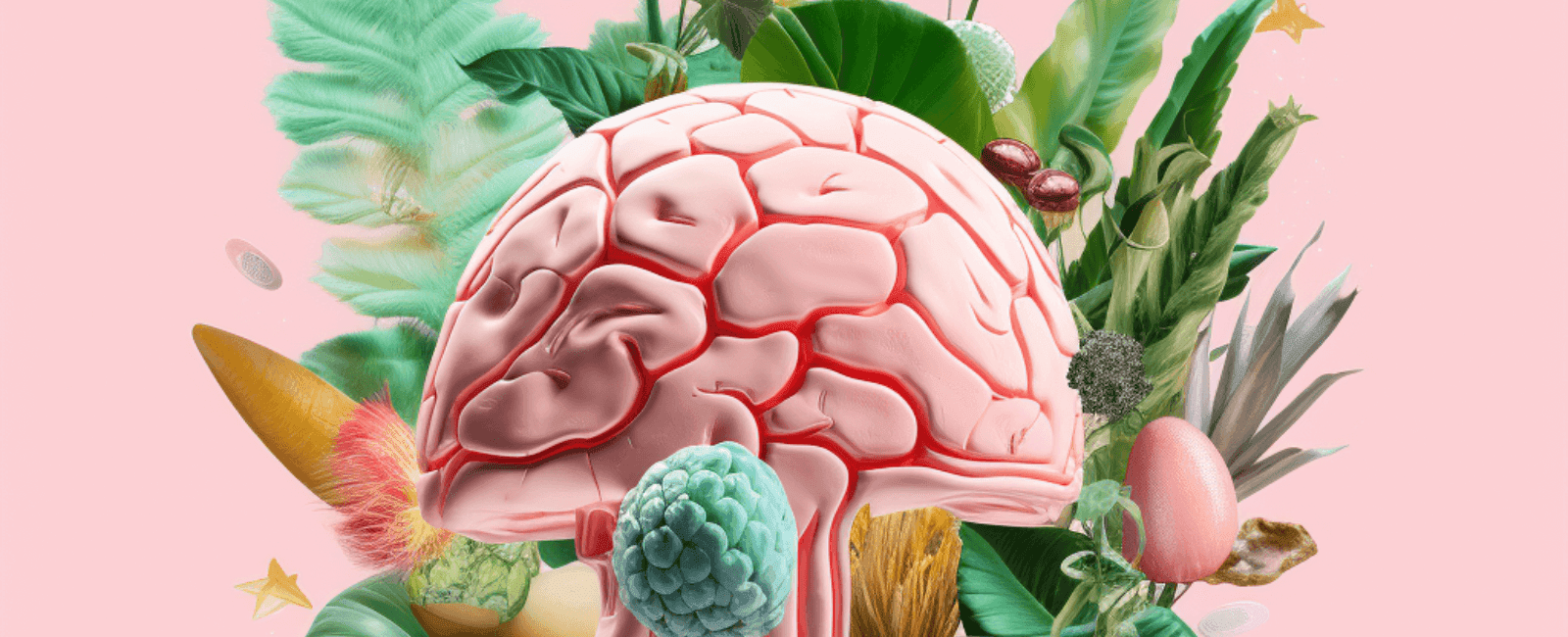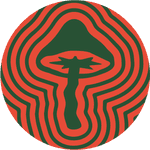

If you’ve ever reached for a cup of tea or coffee for a mental boost, then you already have some understanding of what a nootropic is.
What are nootropics?
Nootropics are used to enhance cognitive function and memory by improving the circulation of blood, oxygen, and nutrients to the brain. The word ‘nootropic’ stems from the Greek words for mind (nous) and troponin (to bend or turn).
Typically, people who use these cognitive enhancers fall into two groups: those looking for a temporary edge during moments requiring heightened mental stamina (such as final exams), and people who take them longer-term to prevent or improve more serious mental health conditions like Alzheimer’s disease (AD) and age-related dementia (1).
Nootropics (aka smart drugs) have been established as substances with specific qualities that inherently (2):
- improve the brain’s ability to adapt
- protect brain cells
- tonify the brain’s primitive and higher-level thinking mechanisms
- carry few, if any, side effects
The three main categories of nootropics are prescription medications, synthetic compounds, and dietary supplements. Some nootropics (like coffee) are more obviously stimulating, while others (like tea) bring a sense of relaxed energy.
We have compiled a list of some of the best nootropics nature offers, and some might already be in your pantry. (3) (4)
Caffeine
Caffeine can be taken either as a beverage or in supplement form. It improves mental alertness, increases energy, and improves concentration. Studies show that these benefits are experienced with low to moderate amounts – somewhere between 43-100mg. In context, one eight-ounce cup of coffee typically contains about 95mg.
Though there has been some debate over its tendency to be too stimulating for certain people, coffee is still overwhelmingly considered a superfood that is rich in antioxidants, in addition to minerals like magnesium and potassium (5).
L-Theanine
L-Theanine is a substance found in tea that comes naturally bundled with caffeine. The presence of this amino acid is why a cup of tea gives us more even-keeled mental energy compared to coffee. Of all the different varieties, green teas are highest in L-Theanine.
If you are caffeine sensitive, this compound is also available in supplement form. Suppose you can tolerate a little caffeine. In that case, high-quality green tea provides a long list of additional benefits, including anti-cancer, anti-inflammatory, and anti-diabetic properties, while supporting heart health (6). Learn more about the caffeine content of different beverages.
Creatine
Creatine is an amino acid that most people associate with boosting athletic performance, but it can also be used to prevent or delay the onset of neurological diseases that stem from decreased dopamine. When consumed, creatine binds with phosphate in the brain, helping us maintain sufficient levels of ATP. A compound that is crucial to the survival of all forms of planetary life, ATP powers a variety of bodily functions, like helping our nerve cells communicate effectively.
Animal proteins are also a great source of creatine. While there are not many studies on the link between animal-based foods and brain health, the few studies that do exist are both consistent and significant – showing that consumption of animal-based foods by children and lactating mothers improves cognitive development in children that can extend into adulthood. (7)
In supplement form, creatine has been studied extensively for over two hundred years and has been shown to be safe for daily use at dosages of up to 5 grams (8).
Huperzine A
Huperzine A is a plant alkaloid derived from the moss Huperzia serrata. It helps us maintain healthy levels of the neurotransmitter acetylcholine, which has a positive influence on memory, learning, and focus. Additionally, this supplement supports our ability to learn new things (such as a new language) and discard information that is no longer useful to us (9). A component in the ancient herbal blend called Qian Ceng Ta, the Chinese have used this substance for thousands of years for inflammatory conditions and cognitive dysfunctions (10).
Dosages range between 200-500mcg per day, taken with or without food in divided doses. (11). Check out what people are saying about Huperzine A on Reddit.
Lions Mane mushroom
Lions Mane mushroom has been extensively studied for its affinity towards the brain and has a long history of use as a vitality tonic in Eastern medicine. Science shows that Lions Mane stimulates the production of nerve growth factor (NGF) and neurotransmitters like dopamine and norepinephrine. NGF plays an important role in the protection, repair, and regeneration of nerve cells, while these two neurotransmitters support our ability to learn new things, problem-solve, and retain information. (12)
Lions Mane has a savory flavor and a meaty texture that makes it a great addition to a wide variety of dishes. It can also be taken in supplement form, either as a capsule or tincture. Unlike most mushrooms that concentrate their medicinal compounds in their caps, the bioactive components in Lions Mane are found mostly underground in its mycelium (the fungal version of a root system). (12) (13) Most clinical studies on brain health have used daily dosages between 750mg-3g.
Ginkgo biloba
Ginkgo biloba is one of the oldest living tree species, and its fan-shaped leaves have been used in Eastern medicine for millennia to treat circulatory problems. Today, it is one of the most studied plants for its anti-inflammatory, antioxidant, and circulation-boosting benefits. (14) (15) (16) (17).
In a systematic review of hundreds of studies on plant-derived nootropics (PDNs), Ginkgo stood out as having the most wide-ranging benefits for cognitive function.Dosages range from 60 milligrams for general brain health to 240 milligrams to improve dementia symptoms.
Bacopa monnieri
Bacopa monnieri has been used in Ayurvedic Medicine for thousands of years as a calming tonic. Also known as brahmi, there is ample scientific evidence showing that it safely regulates our production of dopamine and serotonin – neurotransmitters that help us with memory, focus, motivation, mood, and sleep.
Brahmi comes from the Sanskrit word for Lord Brahma, who is considered the divine force behind all creation. Bacopa is one in a small group of rasayanas (medicinal plants) revered for their ability to lengthen lifespan and invigorate the body (18). Dosages range from 300 - 600 milligrams daily and should be taken with a small amount of food rich in healthy fats (i.e., a couple slices of avocado) (19).
Ashwagandha
Ashwagandha is another adaptogenic herb with a long history of use in Ayurveda. Like all rasayanas, these herbs work by increasing our resilience to stress. Each herb has its own special superpower, and where ashwagandha especially shines is in the area of reducing anxiety and stress.
Bacopa monnieri and ashwagandha can be taken together to optimize their stress-reducing and cognitive-enhancing effects. In fact, these two are a classic pairing in Ayurveda. (20) (21) Dosages range from 250 - 500 milligrams daily and can be taken with a snack to prevent stomach upset (22).
Fish oil/omega 3’s
Fish oil/omega 3’s - Almost sixty percent of the brain is made up of fat. Omega-3 fatty acids have been proven to be a key brain-booster – helping regulate the nervous system and improve cognitive function. Eating fatty fish like sardines and mackerel keeps brain cells lubricated so they can communicate better while promoting blood flow to the brain and regeneration of nerve cells (23).
Dosages range from 1,000 - 2,000 milligrams of fish oil, with a USDA-established upper limit of 3,000 milligrams (24). Look for a purified, sustainably-sourced product that contains a combination of DHA to EPA in a 4:1 ratio. Fish oil should be taken with meals in divided doses.
To sum up, certain foods and supplements are a great source of natural nootropics that carry little to no side effects compared to prescription drugs. In fact, Traditional Chinese Medicine lists over a thousand plants and 36 animal species in its pharmacopeia. Memory-enhancing foods and supplements can make a positive impact on both healthy people and those with more serious mental health and cognitive dysfunctions. When it comes to cognitive enhancers, food truly can be medicine (25).
References
- Napoletano, Flavia, Schifano, Fabrizio, Corkery, John M., Guirguis, Amira, Arillotta, Davide, Zangani, Caroline, and Alessandro Vento. “The Psychonauts’ World of Cognitive Enhancers.” Frontiers in Psychiatry 11, (2020). https://doi.org/10.3389/fpsyt.2020.546796.
- Wikipedia. 2023. “Corneliu E. Giurgea.” Wikimedia Foundation. Last modified January 22, 2023. https://en.wikipedia.org/wiki/Corneliu_E._Giurgea.
- Julson, Erica, MS, RDN, CLT. (2023). “The 14 Best Nootropics and Smart Drugs Reviewed.” Healthline. https://www.healthline.com/nutrition/nootropics.
- Brody, Barbara. (2022). “What Are Nootropics?” WebMD. https://www.webmd.com/vitamins-and-supplements/features/nootropics-smart-drugs-overview.
- “Coffee.” The Harvard School of Public Health. https://www.hsph.harvard.edu/nutritionsource/food-features/coffee/.
- Gunnars, Kris, BSc. (2020). “10 Evidence-Based Benefits of Green Tea.” Healthline. https://www.healthline.com/nutrition/top-10-evidence-based-health-benefits-of-green-tea.
- Balehegn, Mulubrhan, Mekuriaw, Zeleke, Miller, Laurie, Mckune, Sarah, and Adegbola T. Adesogan. “Animal-sourced foods for improved cognitive development.” Animal Frontiers 9, no. 4 (2019): 50-57. https://doi.org/10.1093/af/vfz039.
- Mawer, Rudy, MSc, CISSN. (2019). “10 Health and Performance Benefits of Creatine.” Healthline. https://www.healthline.com/nutrition/10-benefits-of-creatine.
- Patel, Kamal. “Huperzine A.” Examine. (2022). https://examine.com/supplements/huperzine-a/.
- “Huperzine A.” ScienceDirect. (2015). https://www.sciencedirect.com/topics/medicine-and-dentistry/huperzine-a.
- “Huperzine A - Uses, Side Effects, and More.” WebMD. https://www.webmd.com/vitamins/ai/ingredientmono-764/huperzine-a.
- Sabaratnam, Vikineswary, Kah-Hui, Wong, Naidu, Murali, and Pamela R. David. “Neuronal Health – Can Culinary and Medicinal Mushrooms Help?” Journal of Traditional and Complementary Medicine 3, no. 1 (2013): 62-68. https://doi.org/10.4103/2225-4110.106549.
- Li, Chen, Lee, Ya, Tzeng, Teng, Chen, Ping, Chen, Po, Shiao, Ju, and Chu Chen. “Neurohealth Properties of Hericium erinaceus Mycelia Enriched with Erinacines.” Behavioural Neurology 2018, (2017). https://doi.org/10.1155/2018/5802634.
- Lorca C, Mulet M, Arévalo-Caro C, Sanchez MÁ, Perez A, Perrino M, Bach-Faig A, Aguilar-Martínez A, Vilella E, Gallart-Palau X, Serra A. Plant-derived nootropics and human cognition: A systematic review. Crit Rev Food Sci Nutr. 2022 Jan 3:1-25. doi: 10.1080/10408398.2021.2021137. Epub ahead of print. PMID: 34978226.
- “Ginkgo.” Mayo Clinic. https://www.mayoclinic.org/drugs-supplements-ginkgo/art-20362032.
- Levy, Jillian, CHHC. “The Best Nootropics (or Brain Supplements) to Boost Learning, Creativity, & More.” (July 22, 2022). https://draxe.com/nutrition/best-nootropics-brain-supplements/#Best_Nootropics.
- “Ginkgo Biloba.” Dr. Weil. https://www.drweil.com/vitamins-supplements-herbs/herbs/ginkgo-biloba/.
- CCA Students. “Brahmi: ‘Herb of Grace.’” Ayurveda College. (September 10, 2013). https://www.ayurvedacollege.com/blog/brahmi/.
- “Bacopa - Uses, Side Effects, And More.” WebMD. https://www.webmd.com/vitamins/ai/ingredientmono-761/bacopa.
- Wadhwa, Renu, Konar, Arpita, and Sunil C. Kaul. “Nootropic potential of Ashwagandha leaves: Beyond traditional root extracts.” Neurochemistry International 95, (2016): 109-118. https://doi.org/10.1016/j.neuint.2015.09.001.
- Gopukumar, Kumarpillai, Thanawala, Shefali, Somepalli, Venkateswarlu, Sathyanaryana Rao, T. S., Thamatam, Vijaya B., and Sanjaya Chauhan. “Efficacy and Safety of Ashwagandha Root Extract on Cognitive Functions in Healthy, Stressed Adults: A Randomized, Double-Blind, Placebo-Controlled Study.” Evidence-based Complementary and Alternative Medicine : eCAM 2021, (2020). Accessed May 17, 2023. https://doi.org/10.1155/2021/8254344.
- Petre, Alina, MS, RD (NL). “Ashwagandha Dosage: How Much Should You Take per Day?” Healthline. (January 18, 2023). https://www.healthline.com/nutrition/ashwagandha-dosage.
- Chang, Chia-Yu et al. “Essential fatty acids and human brain.” Acta neurologica Taiwanica vol. 18,4 (2009): 231-41. https://pubmed.ncbi.nlm.nih.gov/20329590/.
- Pearson, Keith, PhD, RD. “How Omega-3 Fish Oil Affects Your Brain and Mental Health.” Healthline. (December 5, 2017). https://www.healthline.com/nutrition/omega-3-fish-oil-for-brain-health.
- “Traditional Chinese Medicine and Endangered Animals.” Encyclopedia Britannica. https://www.britannica.com/explore/savingearth/traditional-chinese-medicine-and-endangered-animals-2.


